Papers & Case Studies
- ALL
- Papers
- Case Studies


Case Study
Corrosion
Early Corrosion Detection for the EDC Reactor Cooler
Leveraging mCluez™ for Enhanced Asset Reliability Through Proactive Corrosion Monitoring
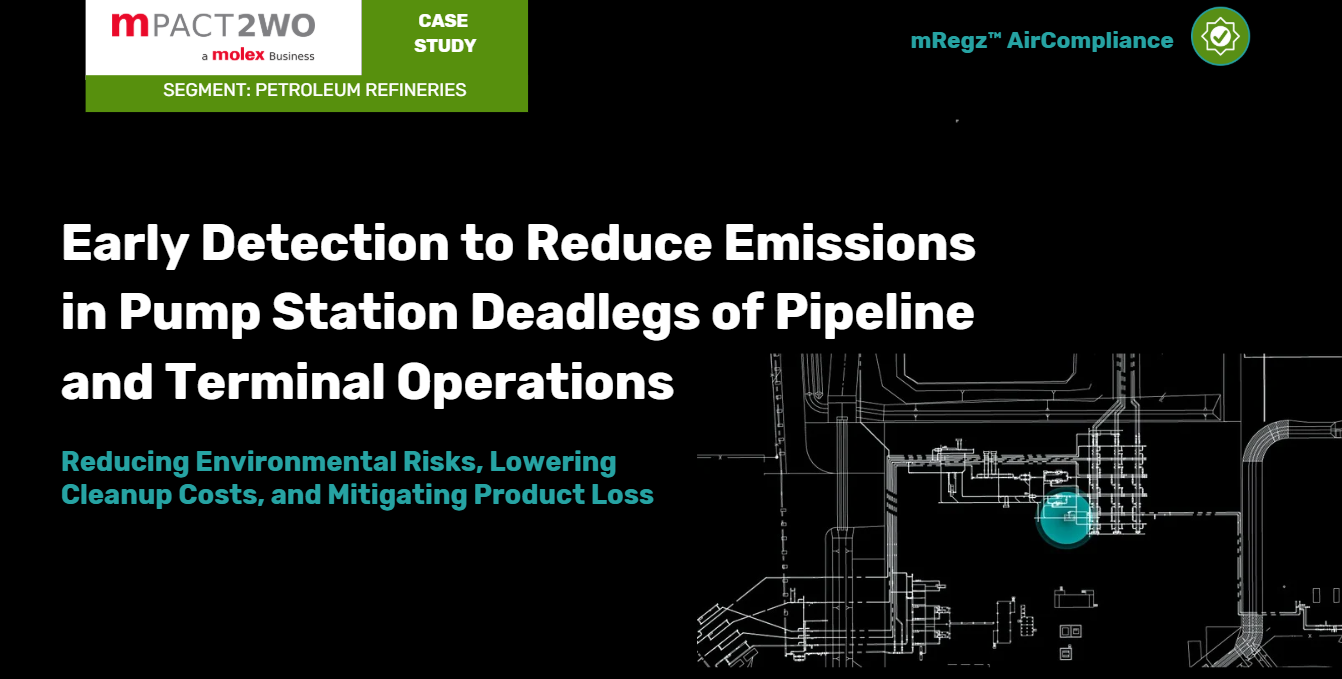
Case Study
AirCompliance
Early Detection to Reduce Emissions in Pump Station Deadlegs of Pipeline and Terminal Operations
Reducing Environmental Risks, Lowering Cleanup Costs, and Mitigating Product Loss
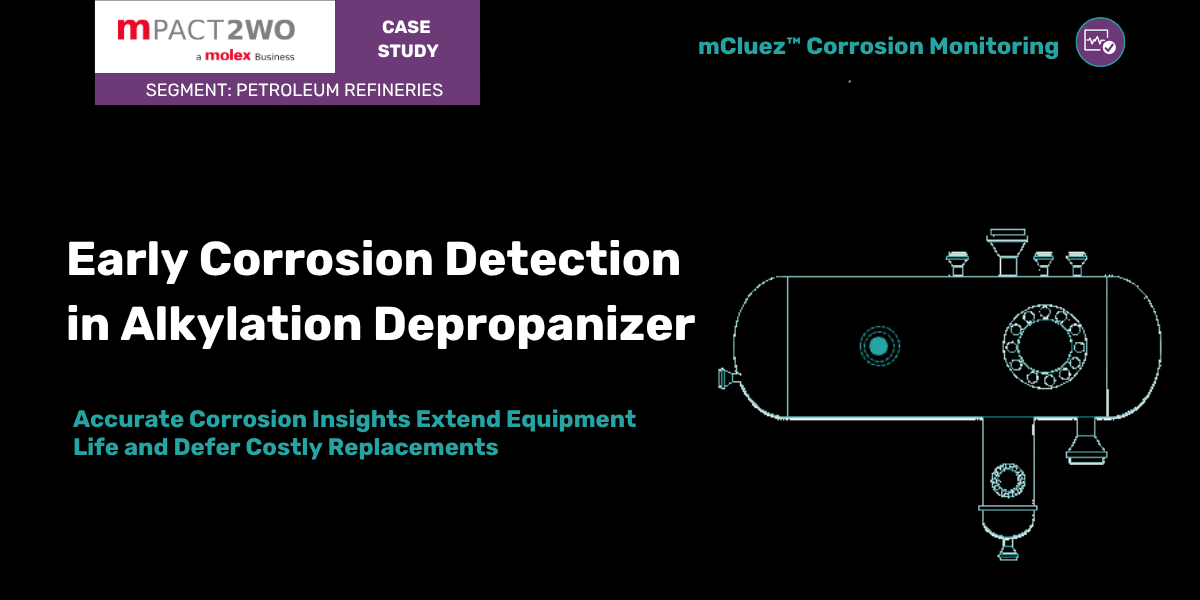
Case Study
Corrosion
Early Corrosion Detection in Alkylation Depropanizer
Accurate Corrosion Insights Extend Equipment Life and Defer Costly Replacements
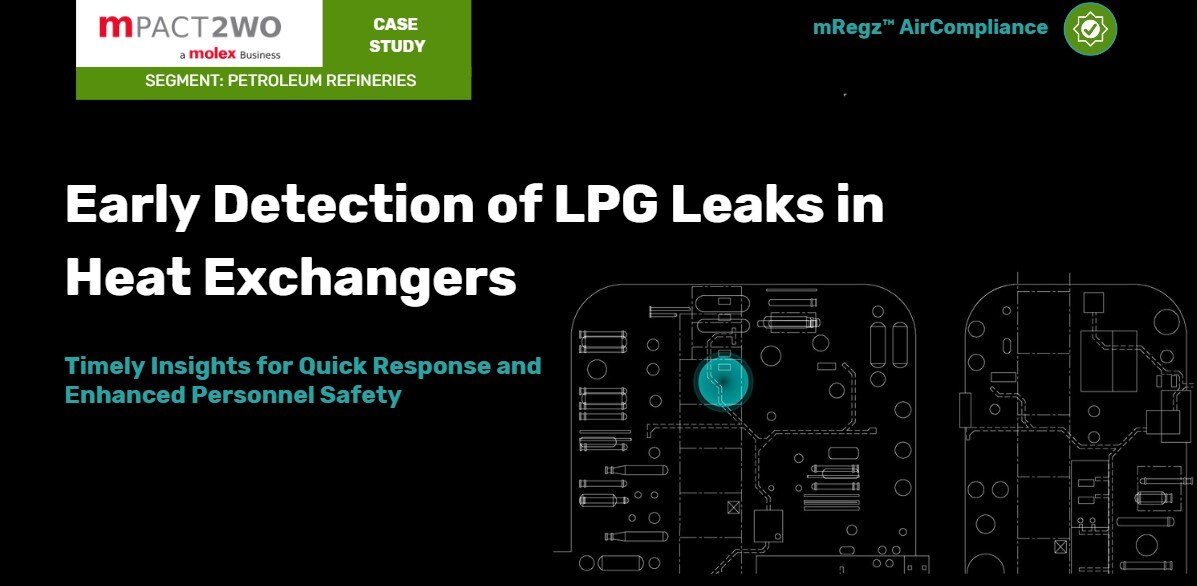
Case Study
AirCompliance
Early Detection of LPG Leaks in Heat Exchangers
Timely Insights for Quick Response and Enhanced Personnel Safety

Case Study
Corrosion
Early Corrosion Detection for Degassing System
Unlocking Insights into Corrosion to Reveal Elevated Rates and Lineup Correlations
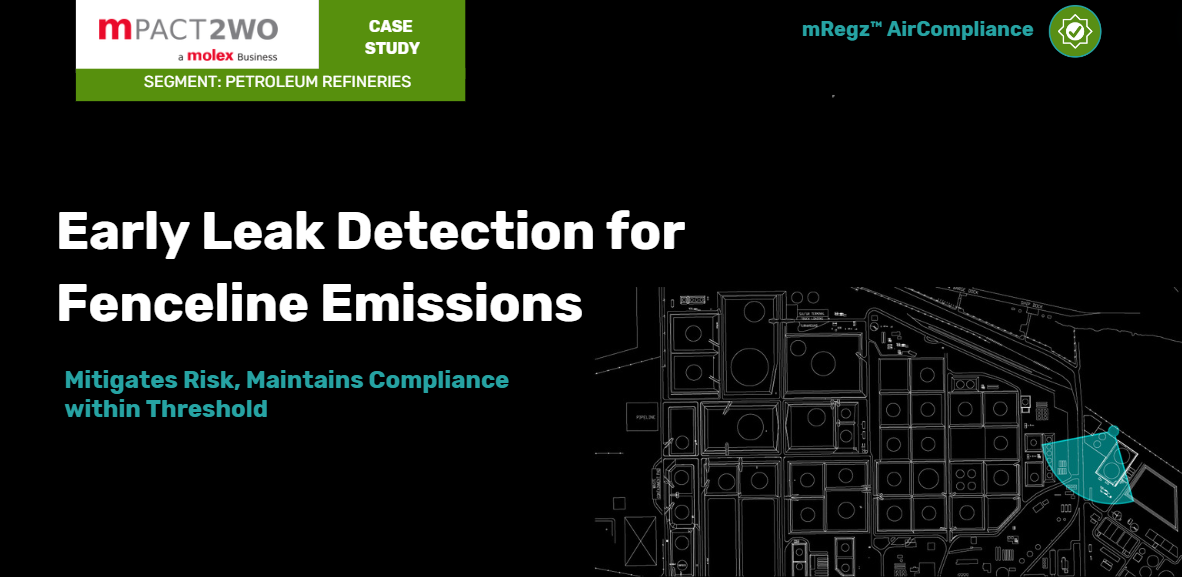
Case Study
AirCompliance
Early Leak Detection for Fenceline Emissions
Mitigates Risk, Maintains Compliance within Threshold
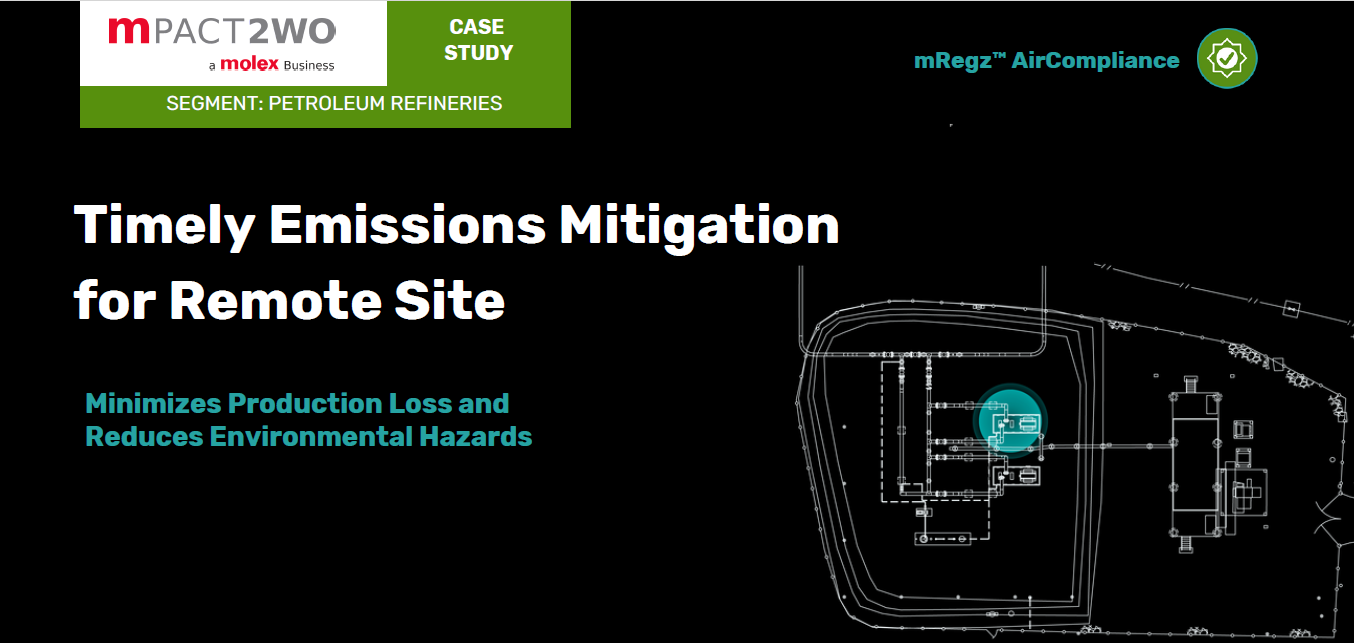
Case Study
AirCompliance
Timely Emissions Mitigation for Remote Site
Minimizes Production Loss and Reduces Environmental Hazards
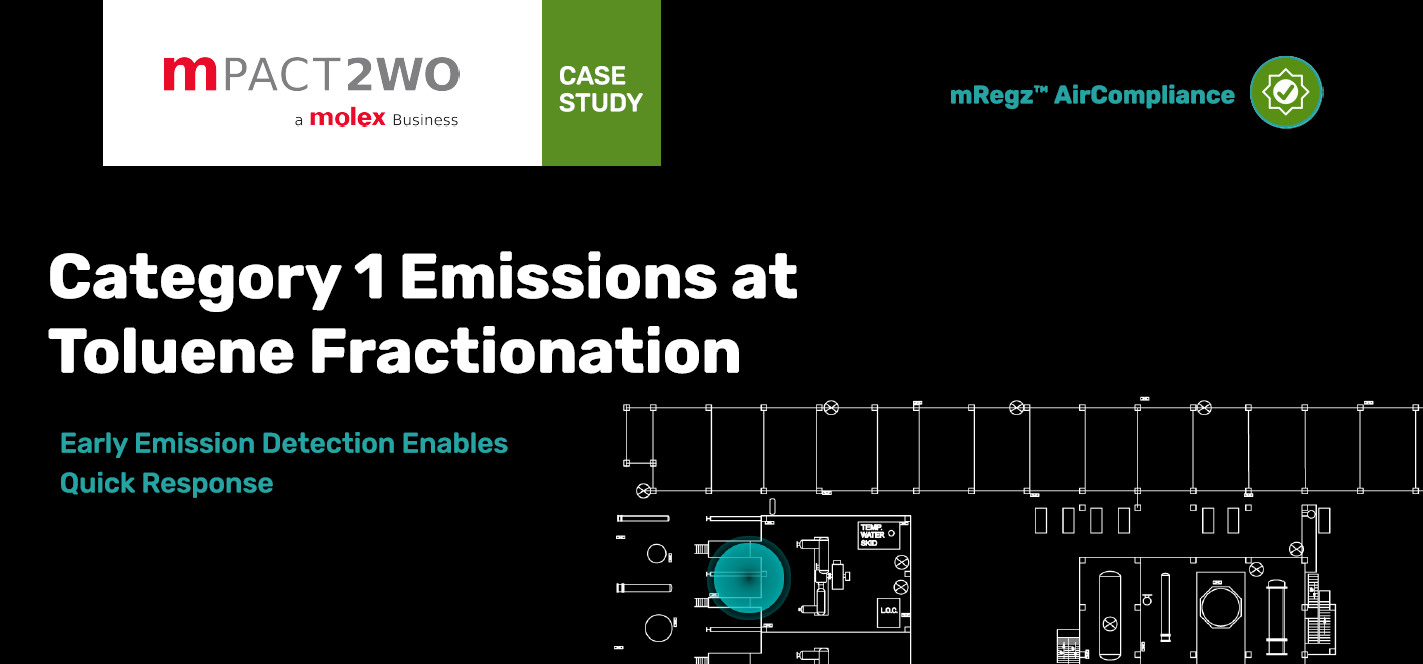
Case Study
AirCompliance
Category 1 Emissions at Toluene Fractionation
Early Emission Detection Enables Quick Response
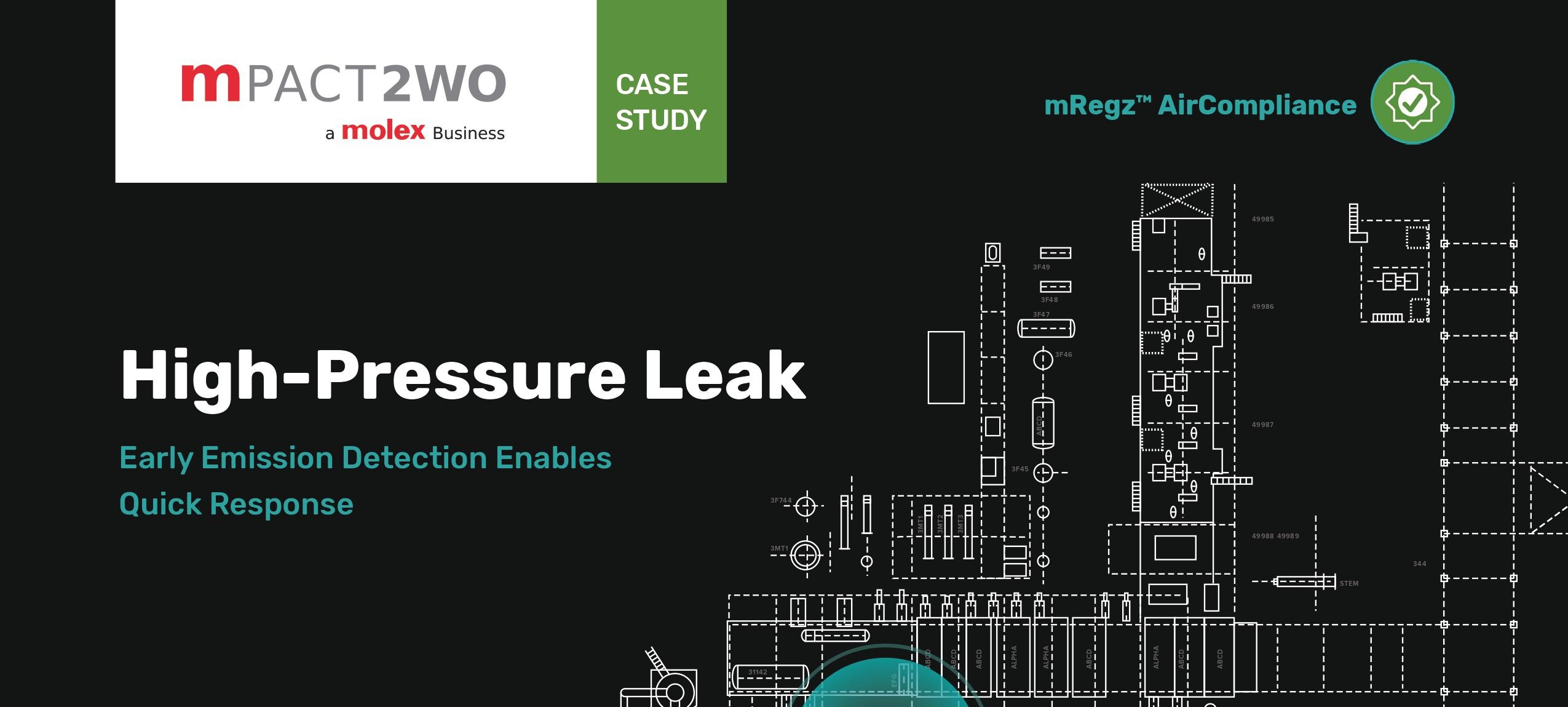
Case Study
AirCompliance
High-Pressure Leak
Early Emission Detection Enables
Quick Response
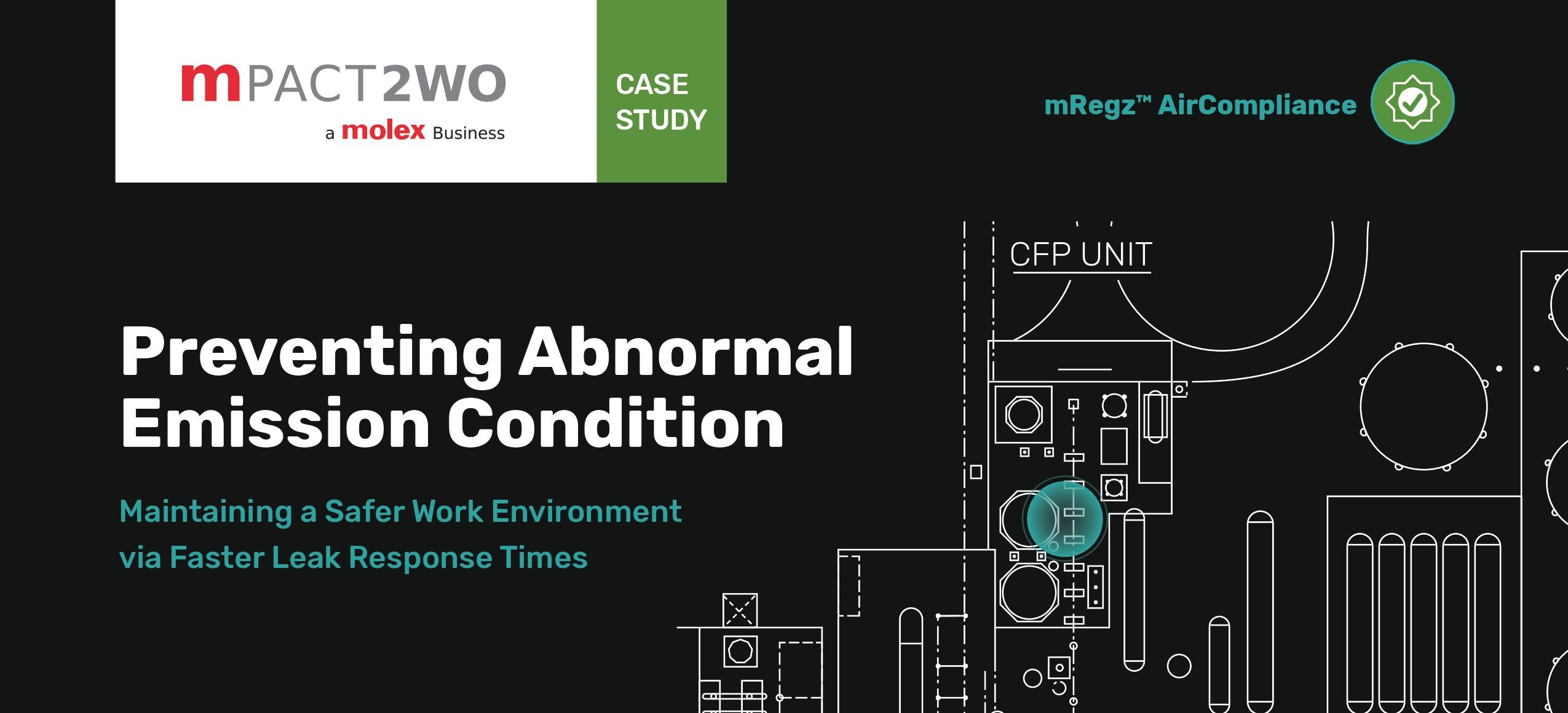
Case Study
AirCompliance
Preventing Abnormal Emission Condition
Maintaining a Safer Work Environment via Faster Leak Response Times
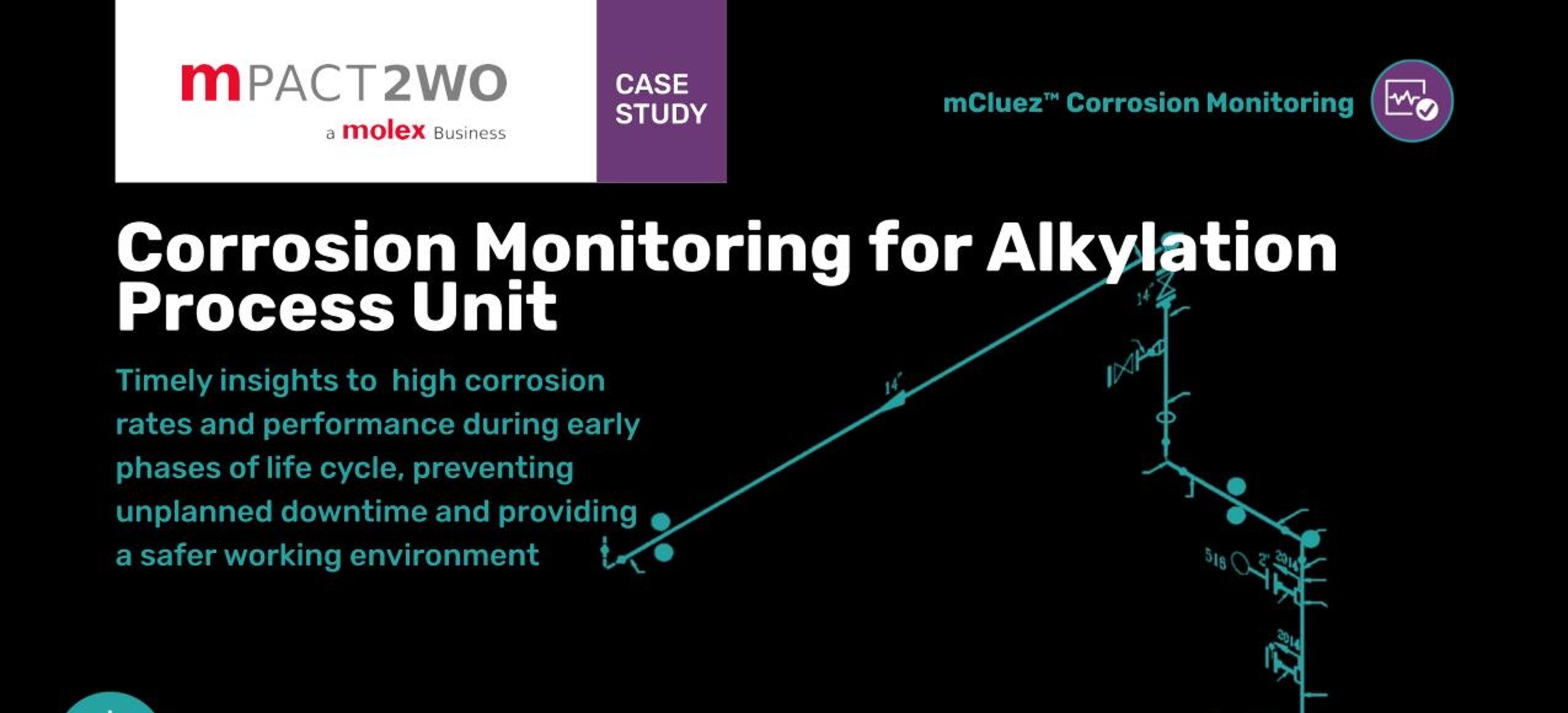
Case Study
Corrosion
Corrosion Monitoring for Alkylation Process Unit
Timely Insights to High Corrosion Rates and Performance During Early Phases of Life Cycle
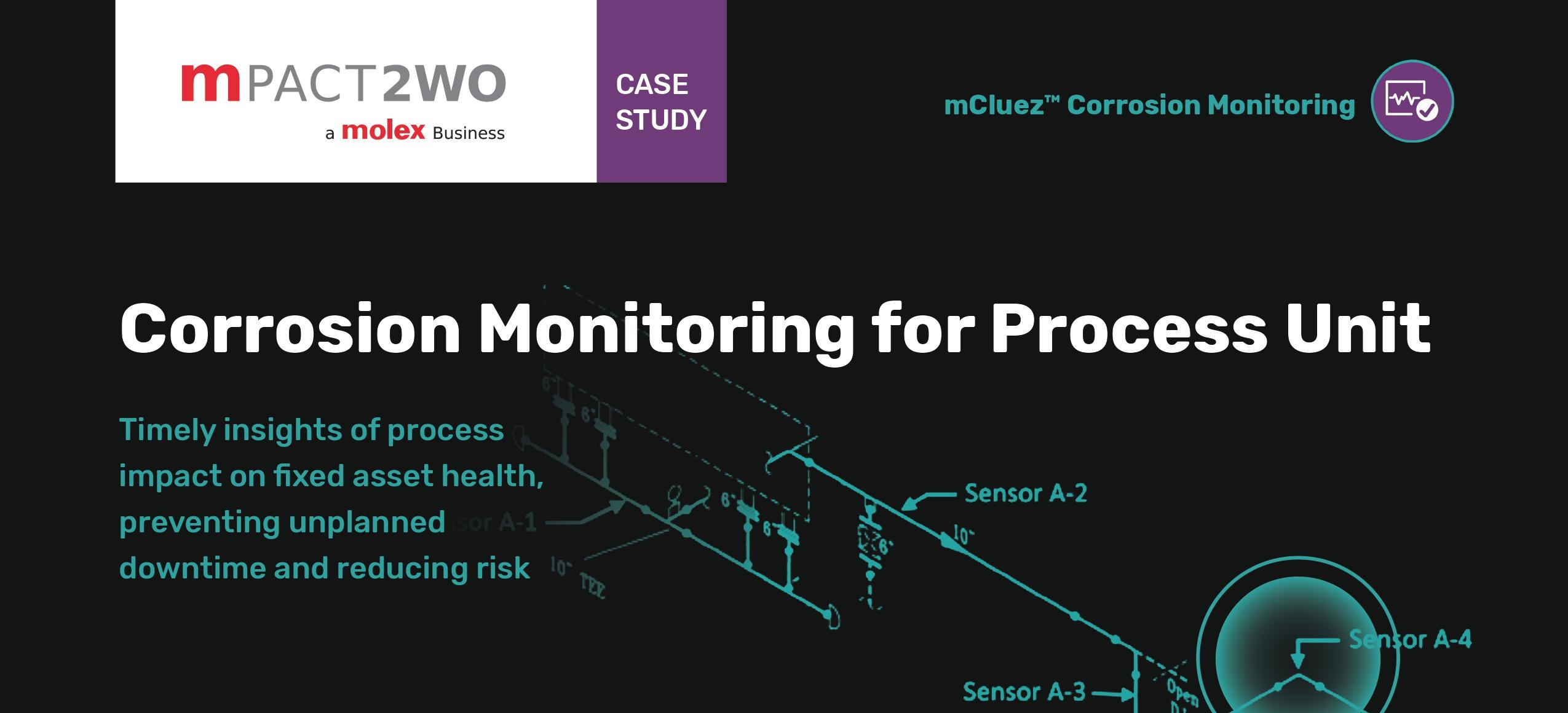
Case Study
Corrosion
Corrosion Monitoring for Process Unit
Timely Insights of Process Impact on Fixed Asset Health

Paper
AIoT-Driven Deadleg Corrosion Monitoring: Future-Ready Asset Integrity Management
Permanently installed ultrasonic sensors, combined with AIoT and NDE 4.0, provide an excellent solution for material evaluation.
Source: Pipeline Technology Journal

Paper
Fenceline Monitoring Now Required for Toxic Air Pollution Rules
Advanced early detection enabled by Artificial Intelligence of Things (AIoT) enhances emissions monitoring by ensuring real-time data accuracy and quick issue resolution, improving environmental compliance and operational efficiency.
Source: plantengineering.com
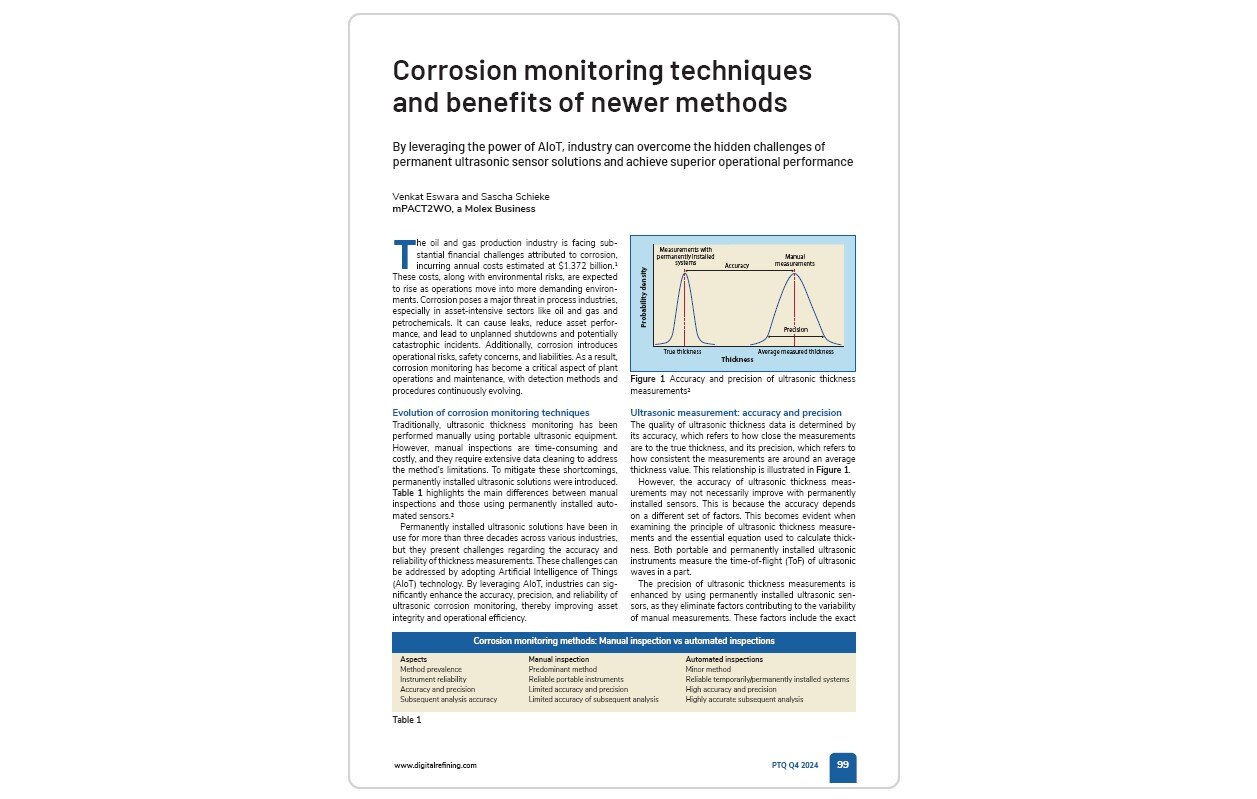
Paper
Corrosion Monitoring Techniques and Benefits of Newer Methods
By leveraging the power of AIoT, industry can overcome the hidden challenges of permanent ultrasonic sensor solutions and achieve superior operational performance
Source: ptqmagazines.digitalrefining.com
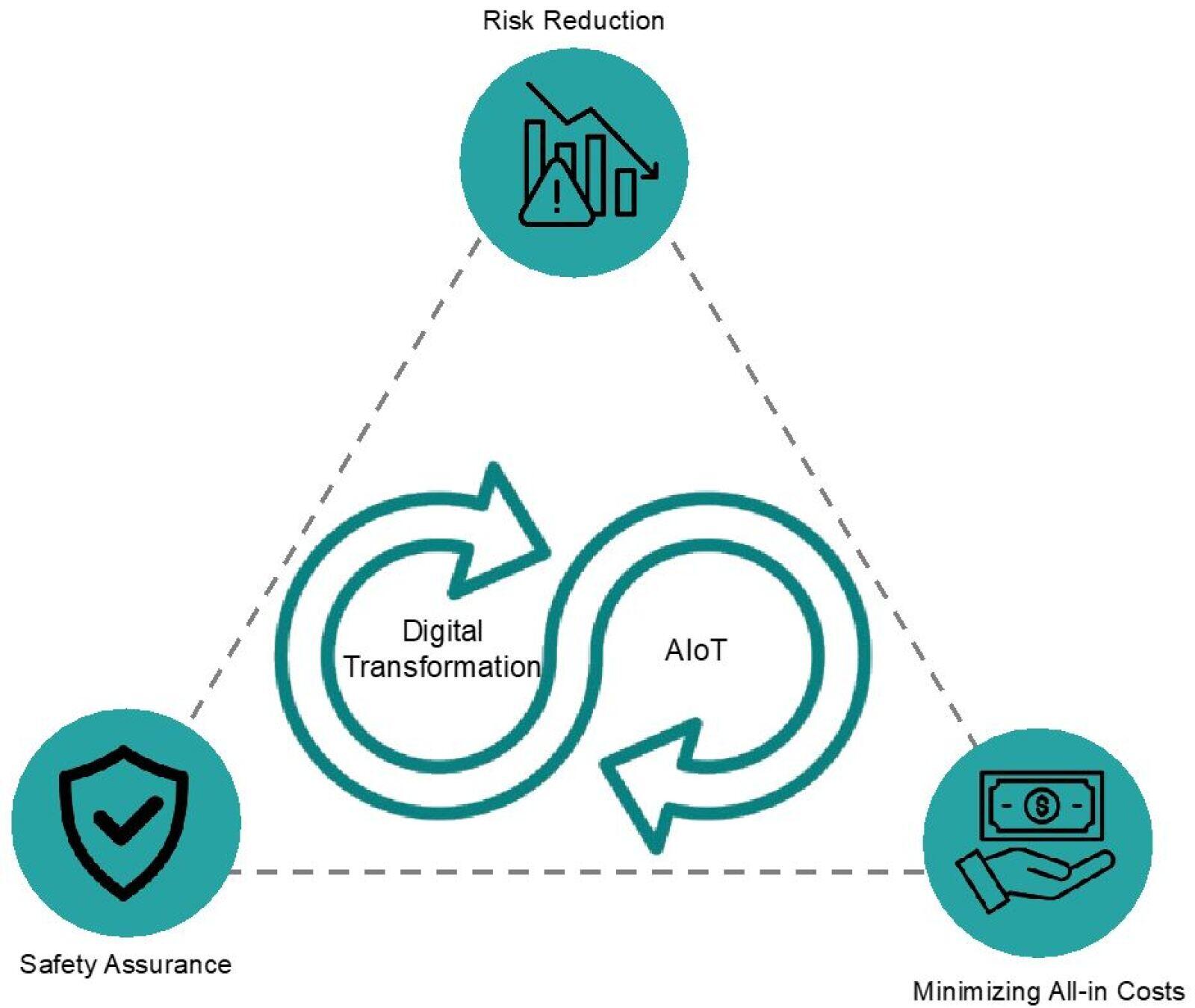
Paper
Top Three Objectives for Digital Transformation in Emissions Monitoring
Explore how integrating these three objectives—risk reduction, safety assurance, and minimizing all-in-costs—into digital transformation strategies enables operators to effectively manage emissions and achieve success.
Source: jpt.spe.org

Paper
Unleashing AIoT for Industrial Operators with a Right-to-Left Approach
AIoT holds the potential to disrupt and transform the industrial segment including the oil and gas sector, leveraging a distinctive right-to-left approach.
Source: oilmanmagazine.com
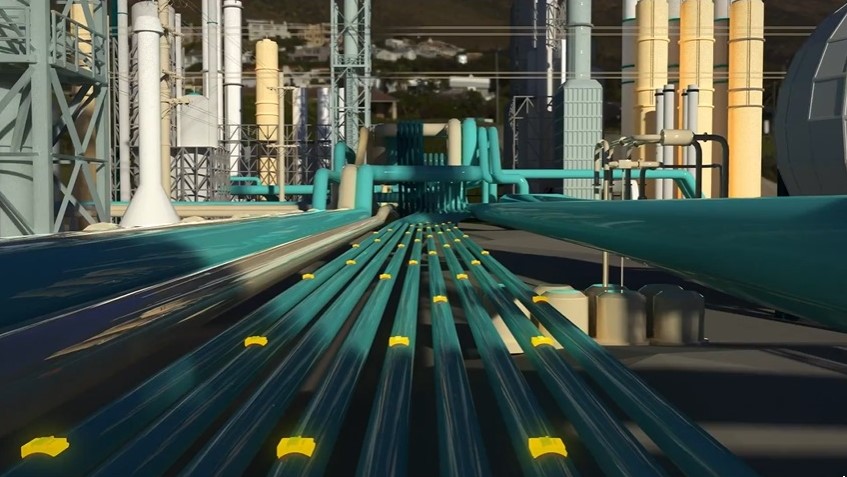
Paper
AI Operator-centric Next-gen Corrosion Monitoring
Refineries, chemicals, and other industrial facilities can benefit significantly from the use of new AI-driven solutions utilizing more sophisticated ultrasonic sensors for corrosion monitoring.
Source: arcweb.com

Paper
Effective corrosion monitoring
Explore how effective corrosion monitoring at scale can prevent catastrophic events and ensure the safety of critical assets in the downstream industry.
Source: hydrocarbonengineering.com
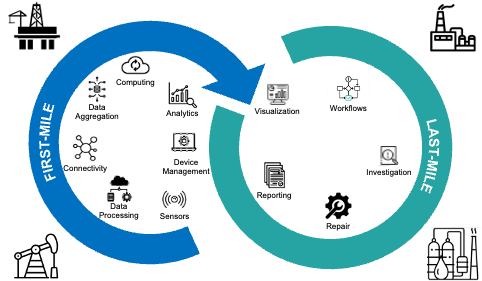
Paper
The Benefits of Artificial Intelligence of Things (AIoT) in Modern Oil and Gas Leak Detection
A pivotal component in obtaining reliable and actionable data for emissions reduction is the implementation of a continuous emissions monitoring solution spanning from the ‘first mile’ to the ‘last mile.’
Source: iiot-world.com
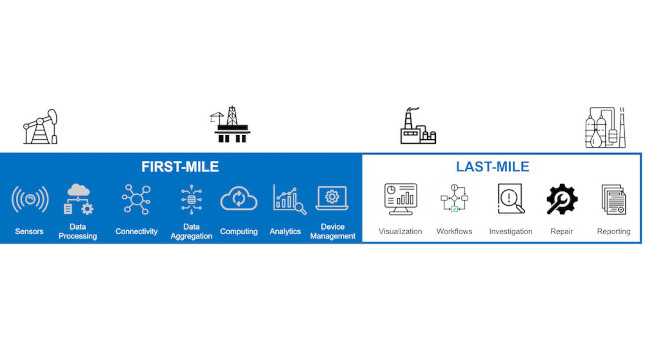
Paper
How to Proactively Reduce Leaks and Emissions in Oil and Gas
Plant managers and engineers in process-focused industries are seeking ways to reduce fugitive emissions to provide a safer work environment and reduce their facilities’ environmental footprint
Source: plantengineering.com
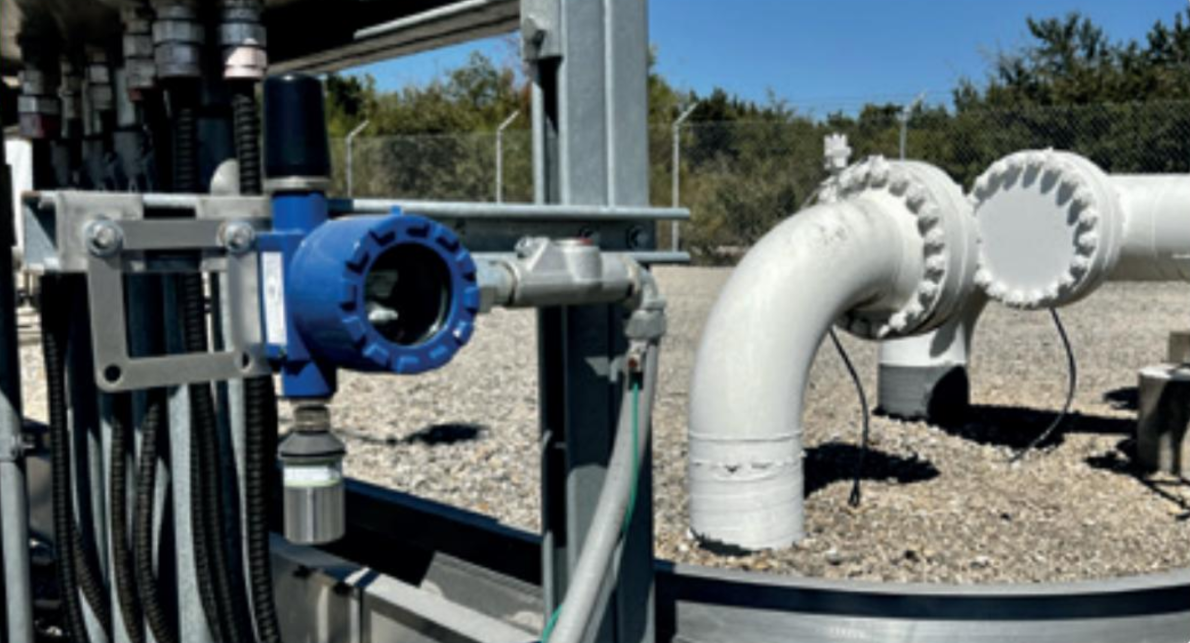
Paper
Growth, Community & Future-Proofing
The team at Flint Hill Resources explains how keeping up with demand and community engagement is enhancing its services.
Source: tankstorage.com
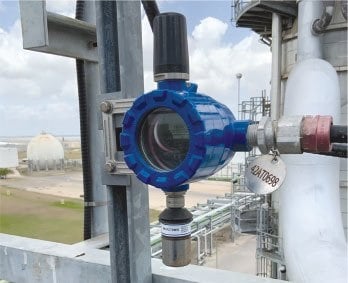
Paper
Flint Hills Resources’ Dillon: Safety, Stewardship Remains a Priority
The novel LDAR system enhances detection of abnormal conditions that could lead to occupational or process safety events, creating a safer work environment and improving data quality.
Source: bicmagazine.com

Paper
Refineries Can Reduce Leak Repairs by Monitoring Emissions
Cutting oil refinery leak repair times by 80 percent through game-changing fixed, continuous emissions monitoring
Source: digitalrefining.com
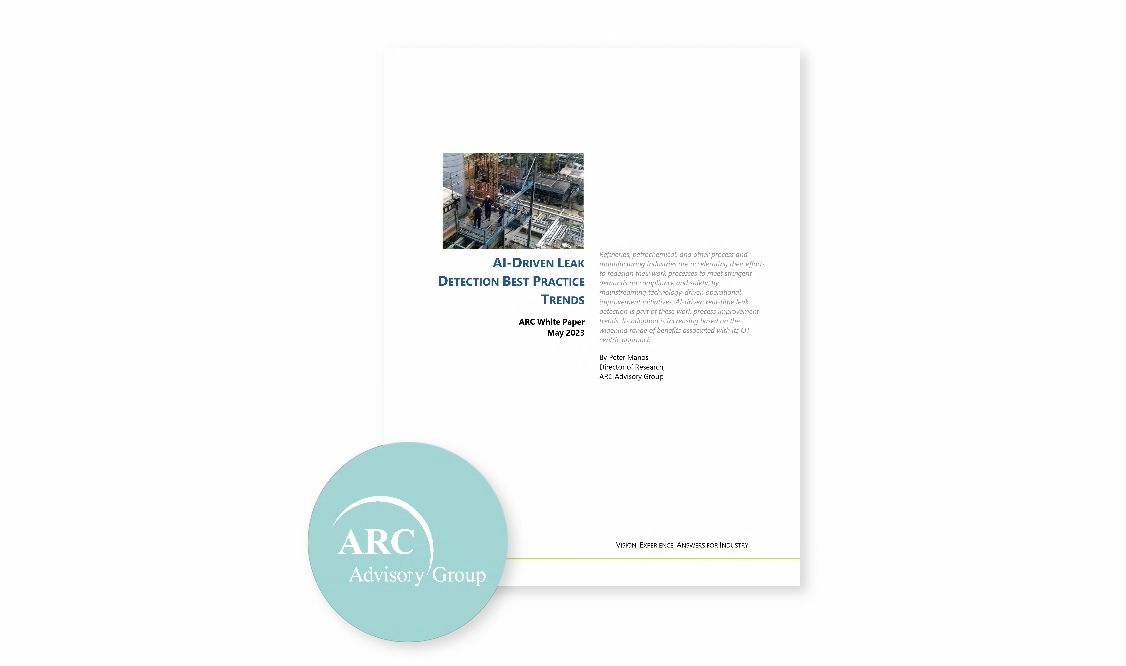
Paper
AI-Driven Leak Detection Best Practice Trends
Industrial organizations can gain advantage by pursuing operator-centric solutions for minimizing fugitive emissions and leaks
Source: arcweb.com

Paper
The Road to Digital Industrial Operators
An operator-first approach to digital technology adoption and transformation is a more effective path to a higher value workforce
